ZPI encourages reflections from retreat participants, staff, members & others touched by our work and doing similar work from around the world, as part of the practice of bearing witness. Greg Seizan Clark, a member of the Denver Zen Center sangha, discusses his reflections on a racism.
Mid-1970’s – I was a young teenager, riding in a car in a small, rural farm town with several other white teenagers. The driver pulled up to a couple of Hispanic kids. One of the older guys in the car told me to roll down my window and spit on them. I was incredulous he would ask me to do such a thing. I said no, though in retrospect, not with as much venom as I wish I had delivered with it. We dropped the conversation and had ice cream like nothing at all happened.
1977 – I traveled to Europe with a high school group. We visited the Dachau Concentration Camp near Munich. I remember to this day (43 years later) how nauseated I was looking at the death chambers, crematoria and the pikes they impaled people on. I was shocked that people could do this to one another. I had studied the holocaust in high school history but was never confronted by it in person. I remember the incredible sense of numbness I felt that day. It changed me forever, or at least I thought it did.
1982 – I was a junior in college and went to USMC Officer Candidate School in Quantico, Virginia. My platoon had guys from all over the country. Our drill sergeant was a black man from Mississippi who looked like the Lou Gossett character in ‘An Officer and a Gentleman’ – huge, imposing and impeccably turned out each day. His job was to bring scruffy college kids and make them Marines. He was scarier than hell. He could climb the rope without using his legs, grap two ropes at the top, turn upside down and descend. I was proud just being able to ring the bell at the top. Across the platoon bay from me was a kid from the deep south who would say unspeakably racist things about the drill sergeant. I told him to stop and asked why he was acting in such a way, and why he, too, wasn’t scared shitless. Although this platoon-mate didn’t change his behavior, he did manage to never say these things loud enough that the platoon sergeant would hear him. I remember wanting him to be overheard.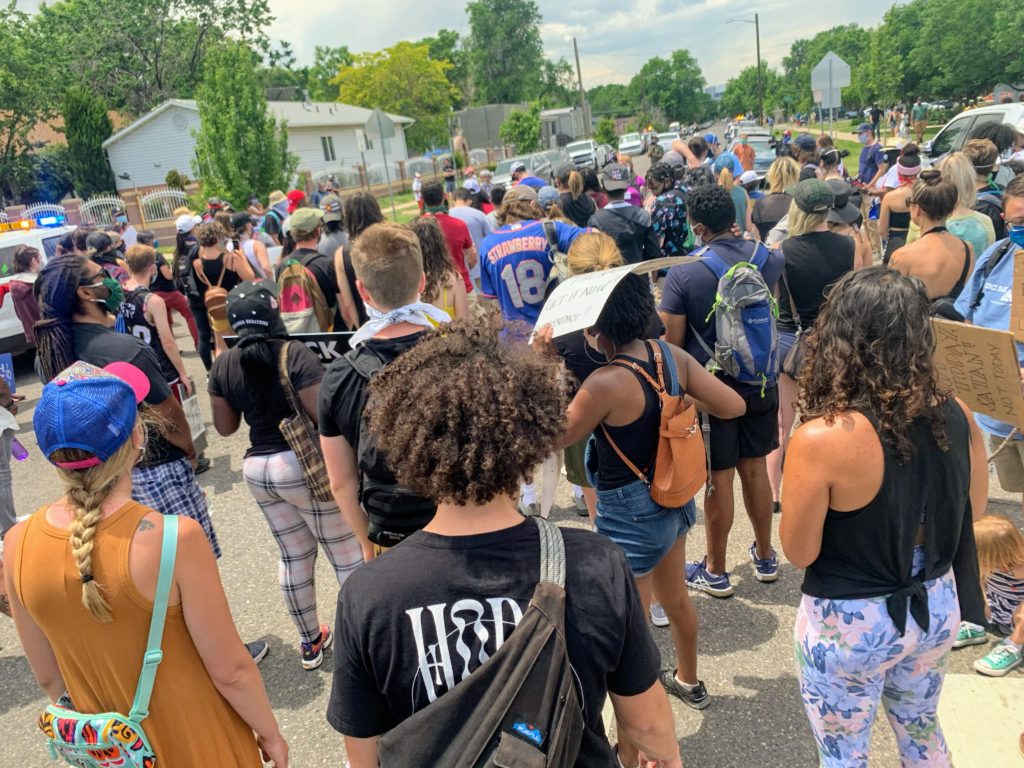
Mid-1980’s – I was in Berlin, W. Germany, headed the next morning to Moscow on a trip with my UBonn classmates. I went to a small tavern and was talking with a huge (6’4”, all muscles) American soldier. He was telling me how the white race was superior, and that black people, Jews, Asians and anyone unlike him (but especially black people) were inferior and didn’t deserve to be treated the same as Caucasians. He also told me that Jesus was white and that non-whites should have no access to Christianity. I suppose I was a little intoxicated and I told him just how full of it I thought he was. I finished my beer and got up to go. He got up right after me and walked directly behind me across the square. I was frightened out of my mind that he was going to take me out for me telling him off. I pictured in my mind’s eye the Berliner Rundschau newspaper the next morning – ‘American college student found bludgeoned. American soldier held pending investigation.’ I was so relieved when he peeled off.
The next thirty or so years involved completing my education, starting my career, starting a family and race wasn’t an everyday topic for me. I realize now just how privileged I was during this time, being an educated white male in the US. All throughout my career I worked with people from all races, genders, religions and sexual orientations but it wasn’t ever top of mind for me, except when national events happened like the Rodney King riots or the OJ trial. We adopted two kids born in Asia, but we lived in cities with a substantial Asian population and have a beloved Korean stepmother and stepbrother in our family. Race simply wasn’t part of our collective awareness.
We considered a move to a southern town in the mid-90’s for a lab director job. We loved the town and the job was cool. When I was out there on an interview or house hunting trip, I asked a young Asian woman I met in a climbing gym if she had ever experienced racism in this town. She told me that she did. We eventually turned the job down for a myriad of reasons, not the least of which was we didn’t want children exposed to racism directed at them.
Fast forward to 2020. During the Covid-19 pandemic, my son had people say racist things to him at work because the virus originated in China. I suppose they confused him for being Chinese, as though that makes it even marginally OK. I was furious, but he was calm saying he’s had racial slurs before and basically considers the source. I marveled at his composure.
Now, in the aftermath of the murders of George Floyd, Breanna Taylor, Eric Garner and Rayshard Brooks (black Americans are more than twice as likely to be shot by police as white people are https://www.washingtonpost.com/graphics/investigations/police-shootings-database/), I feel ashamed that I haven’t been more attentive to the problems of racism in America despite all the encounters I had with it. I suppose I am coming to terms with my own white privilege, while thinking my whole life how non-racist I am. But the fact that it has taken me too long to be outraged at the grotesquely cruel injustice leveled at African Americans in our country, I remain ashamed. I feel like I should have known better, done more and much earlier.
I’ve never had to teach my children how to behave if they were pulled over by the police, like I’ve read that black mothers and fathers have to do. I’ve never been the receiving end of racist behavior. Getting a job never depended to me on the color of my skin, my religious practice or sexual orientation. Yet, I’m coming to understand more and more that injustice for one is injustice for us all.
What’s the point to all this? I suppose that I am examining my own experiences and my own biases to be more aware of how I treat people and how I have reacted (or not) to what is happening in our country. My Zen group – Zen Peacemakers – is dedicated to bearing witness to the joy and suffering in the world, then to act on it. Several of us marched in the Juneteenth rally last weekend. I suppose I hope that others in this privileged white class, of which I am a member, will have their own awakening and help our country come to terms with its own racist past. Perhaps, then, we can make amends and move to a more just society.
About the Author:
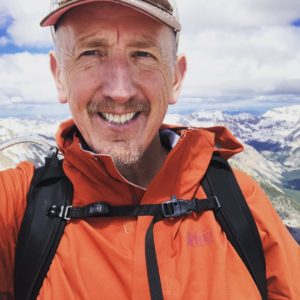 Greg Seizan Clark, a member of the Denver Zen Center sangha, is also an clinical and environmental scientist. Greg is married with four children and 2 grandchildren. In addition to being a devoted family man, he is also an avid skier, photographer, and beginner cellist. He has been practicing Zen for seven years and received Jukai in 2018.
Greg Seizan Clark, a member of the Denver Zen Center sangha, is also an clinical and environmental scientist. Greg is married with four children and 2 grandchildren. In addition to being a devoted family man, he is also an avid skier, photographer, and beginner cellist. He has been practicing Zen for seven years and received Jukai in 2018.

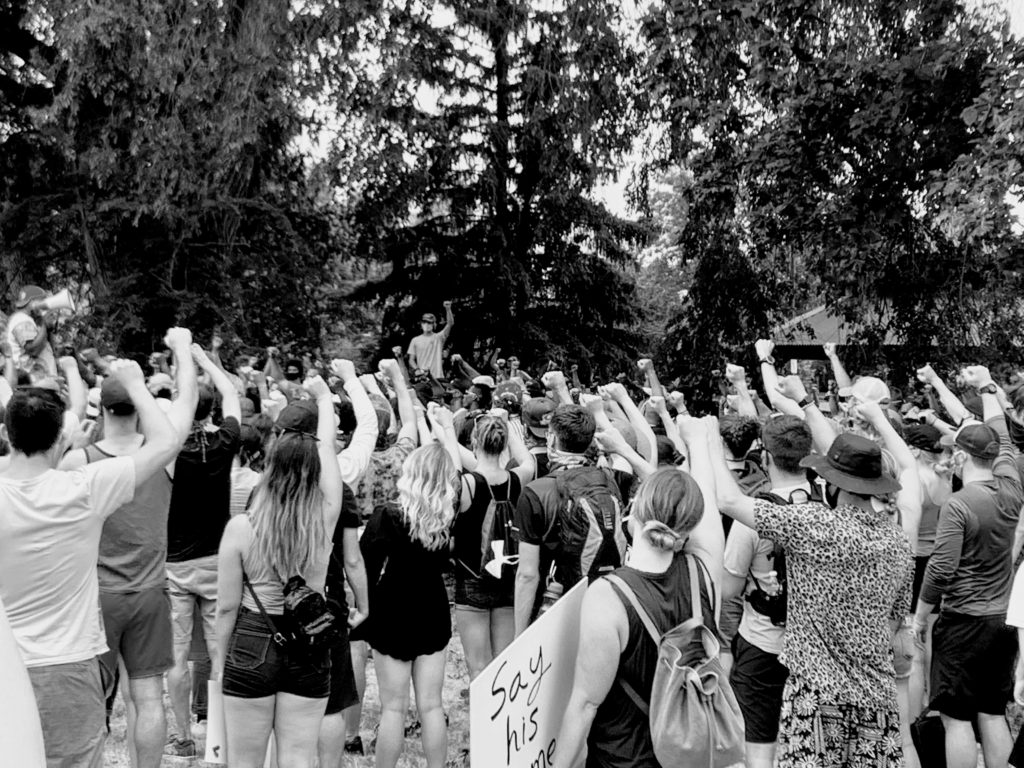
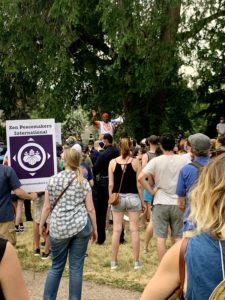
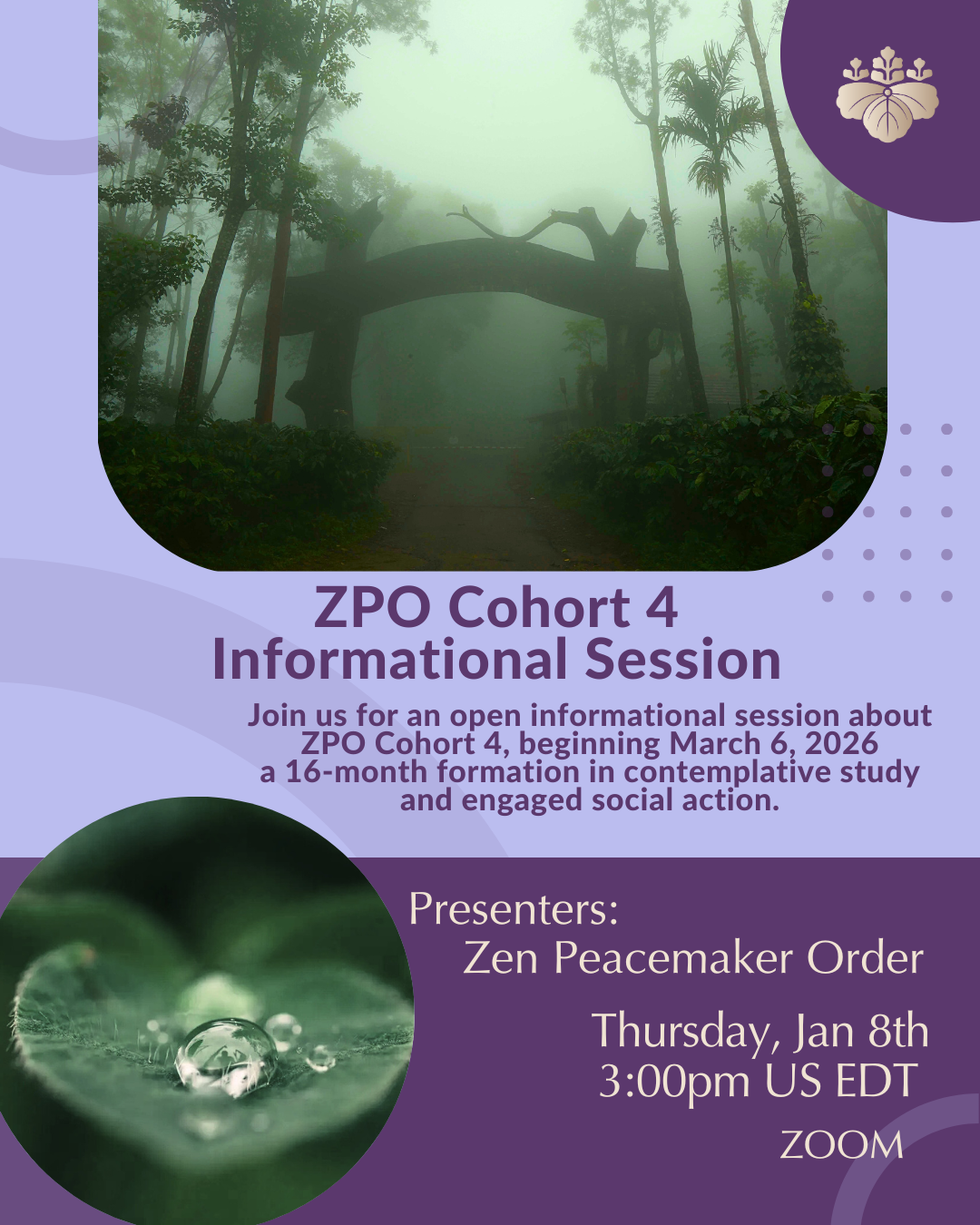
One Response
Thank YOU, Greg! For this sharing! Senshin and I are planning to meet you at the Rally tomorrow (Interdependence Day)in Denver, for as long as my spine can stand being upright…! ;o). Luminous Dana of the Heart (Lumi). Ubuntu!